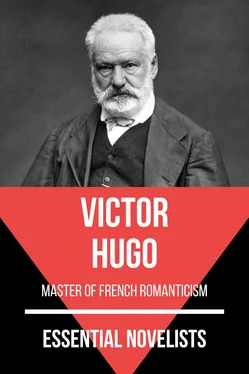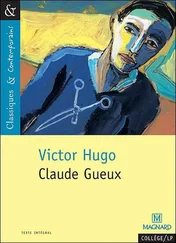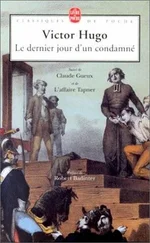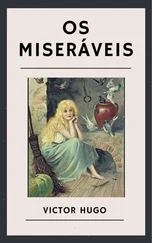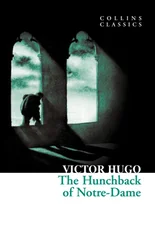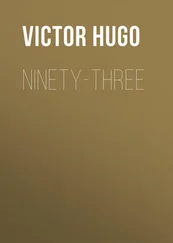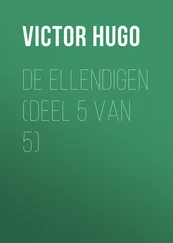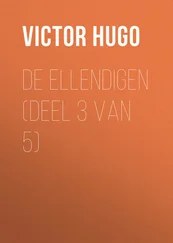“Sister,” said he, “are you alone in this room?”
A terrible moment ensued, during which the poor portress felt as though she should faint.
The sister raised her eyes and answered:—
“Yes.”
“Then,” resumed Javert, “you will excuse me if I persist; it is my duty; you have not seen a certain person—a man—this evening? He has escaped; we are in search of him—that Jean Valjean; you have not seen him?”
The sister replied:—
“No.”
She lied. She had lied twice in succession, one after the other, without hesitation, promptly, as a person does when sacrificing herself.
“Pardon me,” said Javert, and he retired with a deep bow.
O sainted maid! you left this world many years ago; you have rejoined your sisters, the virgins, and your brothers, the angels, in the light; may this lie be counted to your credit in paradise!
The sister’s affirmation was for Javert so decisive a thing that he did not even observe the singularity of that candle which had but just been extinguished, and which was still smoking on the table.
An hour later, a man, marching amid trees and mists, was rapidly departing from M. sur M. in the direction of Paris. That man was Jean Valjean. It has been established by the testimony of two or three carters who met him, that he was carrying a bundle; that he was dressed in a blouse. Where had he obtained that blouse? No one ever found out. But an aged workman had died in the infirmary of the factory a few days before, leaving behind him nothing but his blouse. Perhaps that was the one.
One last word about Fantine.
We all have a mother,—the earth. Fantine was given back to that mother.
The curé thought that he was doing right, and perhaps he really was, in reserving as much money as possible from what Jean Valjean had left for the poor. Who was concerned, after all? A convict and a woman of the town. That is why he had a very simple funeral for Fantine, and reduced it to that strictly necessary form known as the pauper’s grave.
So Fantine was buried in the free corner of the cemetery which belongs to anybody and everybody, and where the poor are lost. Fortunately, God knows where to find the soul again. Fantine was laid in the shade, among the first bones that came to hand; she was subjected to the promiscuousness of ashes. She was thrown into the public grave. Her grave resembled her bed.
––––––––

––––––––

Chapter I
What Is Met With On The Way From Nivelles
––––––––

LAST YEAR (1861), ON a beautiful May morning, a traveller, the person who is telling this story, was coming from Nivelles, and directing his course towards La Hulpe. He was on foot. He was pursuing a broad paved road, which undulated between two rows of trees, over the hills which succeed each other, raise the road and let it fall again, and produce something in the nature of enormous waves.
He had passed Lillois and Bois-Seigneur-Isaac. In the west he perceived the slate-roofed tower of Braine-l’Alleud, which has the form of a reversed vase. He had just left behind a wood upon an eminence; and at the angle of the crossroad, by the side of a sort of mouldy gibbet bearing the inscription Ancient Barrier No. 4, a public house, bearing on its front this sign: At the Four Winds (Aux Quatre Vents). Échabeau, Private Café.
A quarter of a league further on, he arrived at the bottom of a little valley, where there is water which passes beneath an arch made through the embankment of the road. The clump of sparsely planted but very green trees, which fills the valley on one side of the road, is dispersed over the meadows on the other, and disappears gracefully and as in order in the direction of Braine-l’Alleud.
On the right, close to the road, was an inn, with a four-wheeled cart at the door, a large bundle of hop-poles, a plough, a heap of dried brushwood near a flourishing hedge, lime smoking in a square hole, and a ladder suspended along an old penthouse with straw partitions. A young girl was weeding in a field, where a huge yellow poster, probably of some outside spectacle, such as a parish festival, was fluttering in the wind. At one corner of the inn, beside a pool in which a flotilla of ducks was navigating, a badly paved path plunged into the bushes. The wayfarer struck into this.
After traversing a hundred paces, skirting a wall of the fifteenth century, surmounted by a pointed gable, with bricks set in contrast, he found himself before a large door of arched stone, with a rectilinear impost, in the sombre style of Louis XIV., flanked by two flat medallions. A severe façade rose above this door; a wall, perpendicular to the façade, almost touched the door, and flanked it with an abrupt right angle. In the meadow before the door lay three harrows, through which, in disorder, grew all the flowers of May. The door was closed. The two decrepit leaves which barred it were ornamented with an old rusty knocker.
The sun was charming; the branches had that soft shivering of May, which seems to proceed rather from the nests than from the wind. A brave little bird, probably a lover, was carolling in a distracted manner in a large tree.
The wayfarer bent over and examined a rather large circular excavation, resembling the hollow of a sphere, in the stone on the left, at the foot of the pier of the door.
At this moment the leaves of the door parted, and a peasant woman emerged.
She saw the wayfarer, and perceived what he was looking at.
“It was a French cannon-ball which made that,” she said to him. And she added:—
“That which you see there, higher up in the door, near a nail, is the hole of a big iron bullet as large as an egg. The bullet did not pierce the wood.”
“What is the name of this place?” inquired the wayfarer.
“Hougomont,” said the peasant woman.
The traveller straightened himself up. He walked on a few paces, and went off to look over the tops of the hedges. On the horizon through the trees, he perceived a sort of little elevation, and on this elevation something which at that distance resembled a lion.
He was on the battle-field of Waterloo.
Chapter II
Hougomont
––––––––
HOUGOMONT,—THIS WAS a funereal spot, the beginning of the obstacle, the first resistance, which that great wood-cutter of Europe, called Napoleon, encountered at Waterloo, the first knot under the blows of his axe.
It was a château; it is no longer anything but a farm. For the antiquary, Hougomont is Hugomons. This manor was built by Hugo, Sire of Somerel, the same who endowed the sixth chaplaincy of the Abbey of Villiers.
The traveller pushed open the door, elbowed an ancient calash under the porch, and entered the courtyard.
The first thing which struck him in this paddock was a door of the sixteenth century, which here simulates an arcade, everything else having fallen prostrate around it. A monumental aspect often has its birth in ruin. In a wall near the arcade opens another arched door, of the time of Henry IV., permitting a glimpse of the trees of an orchard; beside this door, a manure-hole, some pickaxes, some shovels, some carts, an old well, with its flagstone and its iron reel, a chicken jumping, and a turkey spreading its tail, a chapel surmounted by a small bell-tower, a blossoming pear-tree trained in espalier against the wall of the chapel—behold the court, the conquest of which was one of Napoleon’s dreams. This corner of earth, could he but have seized it, would, perhaps, have given him the world likewise. Chickens are scattering its dust abroad with their beaks. A growl is audible; it is a huge dog, who shows his teeth and replaces the English.
Читать дальше
